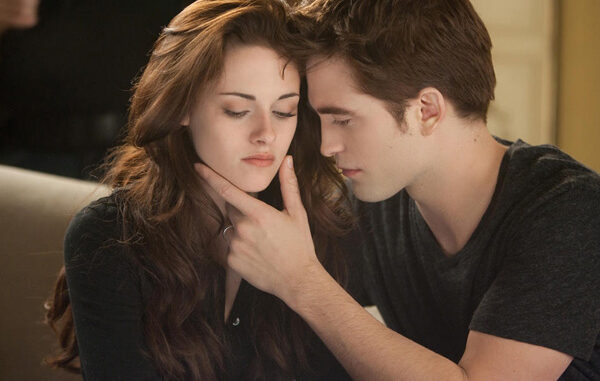
The Gilded Cage and the Ghost in the Machine: Robert Pattinson on the Runaway Train of Twilight Fame
For years, the name Robert Pattinson was inextricably linked to the pale, brooding visage of Edward Cullen, the immortal heartthrob who captured millions of adolescent hearts. The Twilight saga wasn’t just a film franchise; it was a cultural phenomenon, a torrent of adoration that swept up its young leads in a wave unlike anything most had ever witnessed. Now, with the benefit of time and a career that has deliberately veered into the darker, more unconventional corners of cinema, Pattinson has finally begun to articulate the dizzying, disorienting reality of that fame – a reality he describes, with a chilling simplicity, as “out of control.” It’s a confession that pulls back the shimmering veil of Hollywood glamour to reveal the frantic pulse of a life hijacked by a role, a fanbase, and the insatiable maw of celebrity.
To understand the “out of control” nature of Pattinson’s Twilight fame, one must first recall the sheer scale of the phenomenon. The books, already bestsellers, exploded onto the screen, transforming their relatively unknown stars into instant global icons. Pattinson, with his chiseled features and intense gaze, became the embodiment of teenage fantasy. This wasn’t merely popularity; it was idolatry. Fans camped out for days to catch a glimpse, paparazzi descended like vultures, and every move, every whisper, every fleeting expression was dissected, analyzed, and amplified a thousandfold across burgeoning social media platforms. It was a baptism by fire, a sudden immersion into a world where personal boundaries evaporated, and the line between actor and character blurred into non-existence. Pattinson wasn’t just playing Edward; to many, he was Edward.
This blurring of identity was perhaps the most insidious aspect of the “out of control” experience. Imagine being constantly seen as a fictional character, your every public appearance filtered through the lens of a vampiric romantic hero. Pattinson, known for his self-deprecating humor and understated intensity, found himself trapped in a gilded cage, unable to shed the persona that had made him famous. The “out of control” feeling manifested in the relentless pursuit by photographers – a constant, invasive presence that turned simple errands into high-stakes chases. He spoke of feeling like a “ghost in his own life,” unable to move freely, perpetually under surveillance. His private life became a public commodity, meticulously documented and speculated upon, leaving him with little room to breathe, to think, or to simply be. The world demanded Edward, and Pattinson, a young man navigating the complex landscape of nascent adulthood, found himself struggling to protect his true self from the global hunger for the character.
What does it mean for fame to be “out of control”? It means the apparatus surrounding you – the security, the press, the adulation, the merchandising – gains a momentum of its own, a runaway train hurtling through your life. It means your career choices are dictated not by artistic desire but by contractual obligations and the studio’s financial imperative to capitalize on the juggernaut. It means the very thing that brought you success simultaneously threatened to consume your sanity. Pattinson’s early interviews from that period are often tinged with a bewildered irony, a coping mechanism for the sheer absurdity of his situation. He frequently distanced himself from the material, perhaps a subconscious effort to separate himself from the role that had become a golden straitjacket. This detachment was often misconstrued, but in hindsight, it reveals a young man grappling with an existential crisis brought on by overwhelming, unexpected, and unmanageable fame.
Now, years removed from the epicenter of the Twilight explosion, Pattinson’s candid reflections offer a poignant testament to resilience and the hard-won wisdom that comes with distance. His deliberate career shift towards smaller, independent films – roles that demanded transformation, grit, and artistic commitment rather than just a pretty face – was a conscious effort to reclaim his narrative. From the gritty intensity of Good Time to the psychological horror of The Lighthouse and eventually to the iconic cowl of Batman, he has meticulously chiseled away at the Edward Cullen marble to reveal the complex actor beneath. His ability to finally speak on the “out of control” nature of that era isn’t bitterness; it’s a mature acknowledgment of a crucible he survived, a period of immense pressure that forged the artist he is today.
Robert Pattinson’s retrospective on his Twilight fame serves as a crucial reminder that even the most coveted dreams can harbor nightmarish realities. His journey from reluctant heartthrob to reflective artist underscores the human cost of mega-fame, illustrating how the blinding light of celebrity can paradoxically obscure the individual. His simple yet profound admission that it was “out of control” resonates as a cautionary tale, a testament to the fact that sometimes, the greatest challenge isn’t seeking the spotlight, but learning how to live – and thrive – once the spotlight has finally, mercifully, begun to dim.
